Krill oil has moved from a niche supplement to a scientifically recognized tool for supporting cardiovascular and whole-body health.
As one of the fastest-growing dietary supplements, krill oil is gaining popularity due to increasing scientific validation of its health benefits.
At Daiwa Health Development, we’ve watched the growth of krill oil research studies with interest because they confirm what many health professionals already see: krill oil supplementation makes a difference. The science is strong, the benefits are broad, and the applications extend well beyond heart health.
Introduction to Krill Oil
Krill oil is a dietary supplement sourced from Antarctic krill, a tiny crustacean found in the cold waters of the Southern Ocean. Krill are small crustaceans abundant in the oceans, making them a sustainable source for this supplement. What sets krill oil apart is its rich content of omega 3 fatty acids, particularly eicosapentaenoic acid (EPA) and docosahexaenoic acid (DHA).
These essential fatty acids play a crucial role in supporting cardiovascular health, enhancing brain function, and promoting overall well-being. In addition to its impressive fatty acid profile, krill oil contains astaxanthin, a powerful antioxidant that helps protect cells from oxidative damage.
The unique combination of EPA, DHA, and astaxanthin found in krill oil makes it a standout choice for those seeking to enhance their nutritional intake and support heart and brain health through natural means.
Krill Oil and Cardiovascular Health
Cardiovascular diseases remain the leading cause of death globally, representing a major health burden. Prevention through nutrition, especially increasing intake of omega-3 fatty acids, is a key strategy to promote heart health.
The strongest evidence centers on the heart. Multiple clinical studies confirm that krill oil supplementation manages healthy serum triglycerides without raising LDL cholesterol levels. That benefit is a major point of difference compared to some other oil supplements.
Krill oil may also manage healthy high density lipoprotein cholesterol (HDL-C), which is associated with healthy cardiovascular function. Healthy Triglyceride levels matter—because when levels drop, cardiovascular risk falls too. Metabolic syndrome, a cluster of metabolic abnormalities including high triglycerides, low HDL-C, and insulin resistance, should also be managed.
The data is compelling. One randomized controlled trial showed a 12.7% drop in triglycerides over 26 weeks in patients with hypertriglyceridemia receiving krill oil treatment.
Even more important, no increase in low density lipoprotein cholesterol was seen in the krill oil group. Clinical studies using krill oil have demonstrated significant improvements in all lipid parameters markers.
This safety profile makes krill oil appear to be a reliable, marine oil to promote heart health. Krill oil has also been shown to influence cholesterol synthesis and to reduce total fatty acids in the blood, supporting healthier lipid profiles.
The Omega-3 Index is another key measure to support heart health. Krill oil supplementation directly supports heart health thanks to its rich eicosapentaenoic acid (EPA) and docosahexaenoic acid (DHA) content.
The EPA and DHA content in krill oil is highly bioavailable, often outperforming fish oil due to the phospholipid-bound form of these fatty acids. However, krill oil contains a lower concentration of EPA and DHA per softgel compared to fish oil, typically providing 45 to 200 mg of EPA+DHA per softgel. Both fatty acids are proven to protect the heart, improve blood vessel function, and support better cardiovascular outcomes.
The fatty acids bound in phospholipid form in krill oil enhance absorption and may further improve cardiovascular health compared to triglyceride forms as found in fish oil. Fatty acid metabolism, including the oxidation and regulation of these molecules, plays a crucial role in cardiovascular health.
Pro Tip: If you’re concerned about cholesterol or triglycerides, ask your healthcare provider about your Omega-3 Index. Raising that number using krill oil may be positively impactful.
Krill Oil and Brain Function
Emerging research highlights the positive effects of krill oil supplementation on brain function and mental well-being. The omega 3 fatty acids in krill oil, especially EPA and DHA, are crucial for maintaining the structure and performance of brain cells.
Clinical studies suggest that regular oil supplementation with krill oil can enhance cognitive abilities such as memory, focus, and attention. Additionally, krill oil may help alleviate symptoms of depression and anxiety, thanks to its role in supporting neurotransmitter function and managing inflammation in the brain.
The presence of astaxanthin further boosts krill oil’s neuroprotective properties by shielding brain cells from oxidative stress. Together, these components make krill oil a valuable supplement for anyone looking to support cognitive health and emotional balance.
Omega-3 Fatty Acids and Bioavailability
The real advantage of krill oil lies not just in its nutrient profile but in how those nutrients are delivered. The omega 3 fatty acids in krill oil are bound in phospholipid form.
This unique structure enhances absorption into membrane lipids and improves the delivery of the two fatty acids, eicosapentaenoic and docosahexaenoic acids (EPA and DHA), into cells. That improved bioavailability is a differentiator compared to fish oil, where the fatty acids are typically delivered in triglyceride form.
Krill oil is particularly rich in docosahexaenoic acids, which are known for their inflammation management and health-promoting effects, especially in conditions like inflammatory bowel disease (IBD).
Dietary sources of omega 3 fatty acids still matter—oily fish such as salmon, sardines, herring, and albacore tuna, as well as other fatty fish, remain excellent options and are important for meeting omega-3 intake recommendations.
But research shows that krill oil supplementation boosts blood levels of EPA and DHA even when consumed in lower doses than standard fish oil. The market share of krill oil has increased due to consumer preferences for omega-3 sources that may offer advantages over traditional fish oil. For patients with a fish aversion or those following a high fat diet that complicates lipid metabolism, krill oil may be a practical solution.
In clinical studies, krill oil is often compared to other oils such as olive oil, flaxseed oil, evening primrose oil, and high oleic sunflower oil, which are used as control or comparison substances due to their distinct fatty acid compositions and health effects.
Mechanisms of Action of Krill Oil
The health benefits of krill oil stem from its multifaceted mechanisms of action. The omega 3 fatty acids in krill oil, including EPA and DHA, help to manage inflammation throughout the body, which is a key factor in promoting heart health.
Astaxanthin, the natural antioxidant in krill oil, works to neutralize free radicals and minimize oxidative stress, further protecting cells and tissues and preventing oxidation of the krill oil.
Additionally, krill oil has been shown to influence glucose metabolism positively, helping to maintain healthy blood sugar levels. These combined actions make krill oil a powerful ally in promoting cardiovascular and metabolic health.
Clinical Studies on Krill Oil
Clinical trials provide the foundation for our understanding. Many of these are randomized controlled trials, and their findings are often synthesized in meta-analyses to provide a comprehensive view of krill oil’s effects.
Krill oil is derived from Antarctic krill, a sustainable source of long-chain n-3 polyunsaturated fatty acids. Its composition is unique: EPA and DHA in phospholipid form, natural astaxanthin as an antioxidant, and choline to support lipid metabolism and glucose metabolism.
In several clinical studies, placebo oil has been used as a control to assess the effects of krill oil supplementation accurately.
A 2022 randomized clinical trial showed impressive results in older adults taking 4 grams daily. Participants improved skeletal muscle function and even increased muscle size.
Other studies highlight modest but clinically relevant improvements in heart health markers.
Some studies have also examined weight gain and found that krill oil supplementation may help prevent or reduce weight gain in certain populations. Importantly, adverse events are rare, typically limited to mild gastrointestinal discomfort, with no serious adverse events reported.
Systematic review and meta analysis papers confirm what individual clinical studies suggest: krill oil supplementation promotes cardiovascular health. Still, further research is needed to optimize dosing and to confirm long-term cardiovascular outcomes.
There is also a need to understand better the mechanisms underlying these benefits, including the role of peroxisome proliferator activated receptor in lipid metabolism and inflammation. In laboratory models, palmitic acid is often used in cell studies to compare its effects with those of krill oil and omega-3 fatty acids, providing insight into metabolic and inflammatory pathways.
Midway through this body of evidence, one thing stands out. The effects of krill oil are not limited to the heart—they extend into brain health, joint function, and inflammatory balance.
Daiwa Health Development continues to emphasize krill oil’s nutritional value in our supplement portfolio.
Krill Oil vs Fish Oil
The comparison is inevitable. Fish oil supplements remain widely available and generally less expensive. They deliver higher amounts of EPA and DHA per capsule, but in triglyceride form, which may not absorb as efficiently.
Some comparison oils, such as certain fish oils, also contain oleic acid, a monounsaturated fatty acid involved in lipid metabolism and energy substrate utilization in skeletal muscle cells. Krill oil softgels, on the other hand, are smaller, easier to swallow, and often come with fewer reports of fishy aftertaste.
Krill oil also carries the antioxidant astaxanthin, which to keep the krill oil stable and may protect against oxidative stress in adipose tissue and blood vessels.
Fish oil consumption provides cardiovascular health benefits, but krill oil supplementation appears to offer additional advantages, especially for those sensitive to fish oil or seeking broader health benefits.
Krill Oil Intervention Pro Tip
Pro Tip: For those managing autoimmune or gut-related issues, krill oil supplementation may provide adjunctive support. Always discuss it with your physician, especially if you’re on blood-thinning medications, since krill oil can increase bleeding risk.
Safety and Efficacy of Krill Oil
Krill oil supplementation is widely regarded as safe for most individuals, with a low incidence of side effects. The most commonly reported effects of krill oil are mild digestive issues, such as nausea or diarrhea, which typically resolve on their own. However, individuals with shellfish allergies or those taking blood-thinning medications should consult their healthcare provider before starting any marine oil supplementation.
The effects of krill oil have been validated in numerous clinical trials, which consistently demonstrate its ability to manage inflammation, to support cardiovascular health, and to enhance cognitive function. While the current evidence is promising, ongoing clinical trials are essential to clarify the optimal dosage, duration, and long-term safety of krill oil supplementation.
Is Krill Oil Treatment Scientifically Proven?
Yes. Randomized controlled trial data and systematic review and meta analysis reports confirm the cardiovascular and inflammation management effects of krill oil. While krill oil does not “remove plaque” from arteries, it is still a meaningful tool in promoting heart health.
For many, the question becomes: omega-3 or krill oil? The answer often depends on tolerance, absorption, and preference. Fish oil supplementation remains valuable, but krill oil supplements may deliver the same EPA and DHA with greater efficiency, no fishy aftertaste, plus added health benefits from astaxanthin and choline.
Future Directions for Krill Oil Research
As interest in krill oil supplementation continues to grow, future research will play a critical role in unlocking its full potential. Scientists are exploring the use of krill oil in the management of cardiovascular health, neurodegenerative disorders, and other similar conditions. Further research is also needed to determine the most effective dosing strategies and to assess how krill oil interacts with other medications and dietary supplements. Innovations such as phospholipid-bound krill oil may offer enhanced bioavailability and greater health benefits. With its promising profile and expanding body of evidence, krill oil stands out as a valuable dietary supplement, and ongoing studies will help to define its place in modern health and wellness strategies.
The Daiwa Health Development Perspective
At Daiwa Health Development, we see krill oil as part of a broader wellness strategy. It’s not a cure-all, but when combined with balanced nutrition, active lifestyle, and ongoing medical care, krill oil supplements can play a central role in protecting heart health, and supporting long-term resilience.
Fish Oil Supplementation vs Krill Oil Studies Continue
Krill oil research studies continue to expand, and each randomized clinical trial adds confidence to what we already know: krill oil supplementation works. The health benefits are real, the adverse events are minimal, and the opportunities for improved cardiovascular outcomes, inflammatory balance, and even skeletal muscle function are promising.
The future of functional medicine is built on safe, effective, scientifically proven solutions. Krill oil appears to be one of them. That’s why Daiwa Health Development remains committed to offering krill oil supplements that deliver true clinical value—and real improvements in human health.

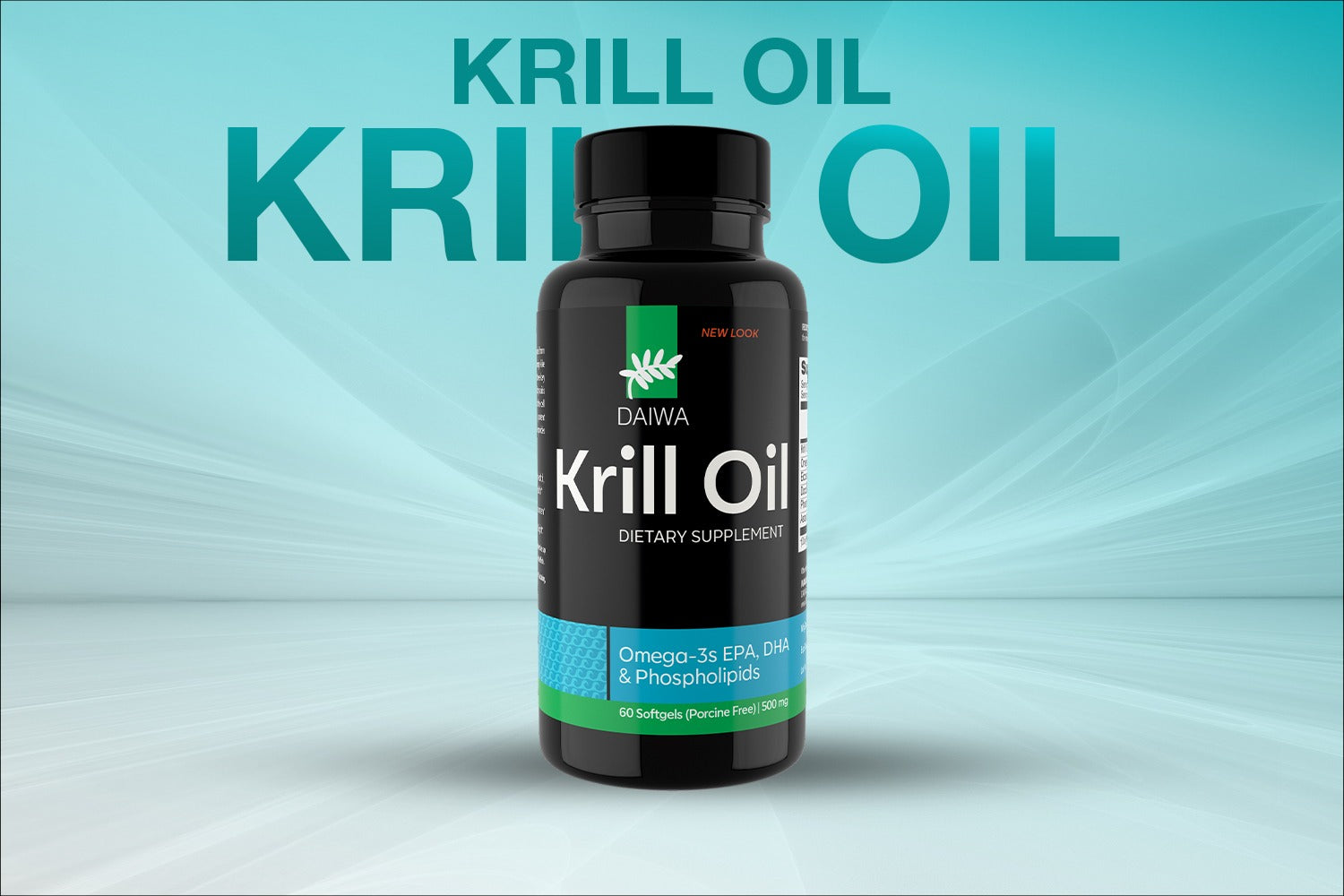
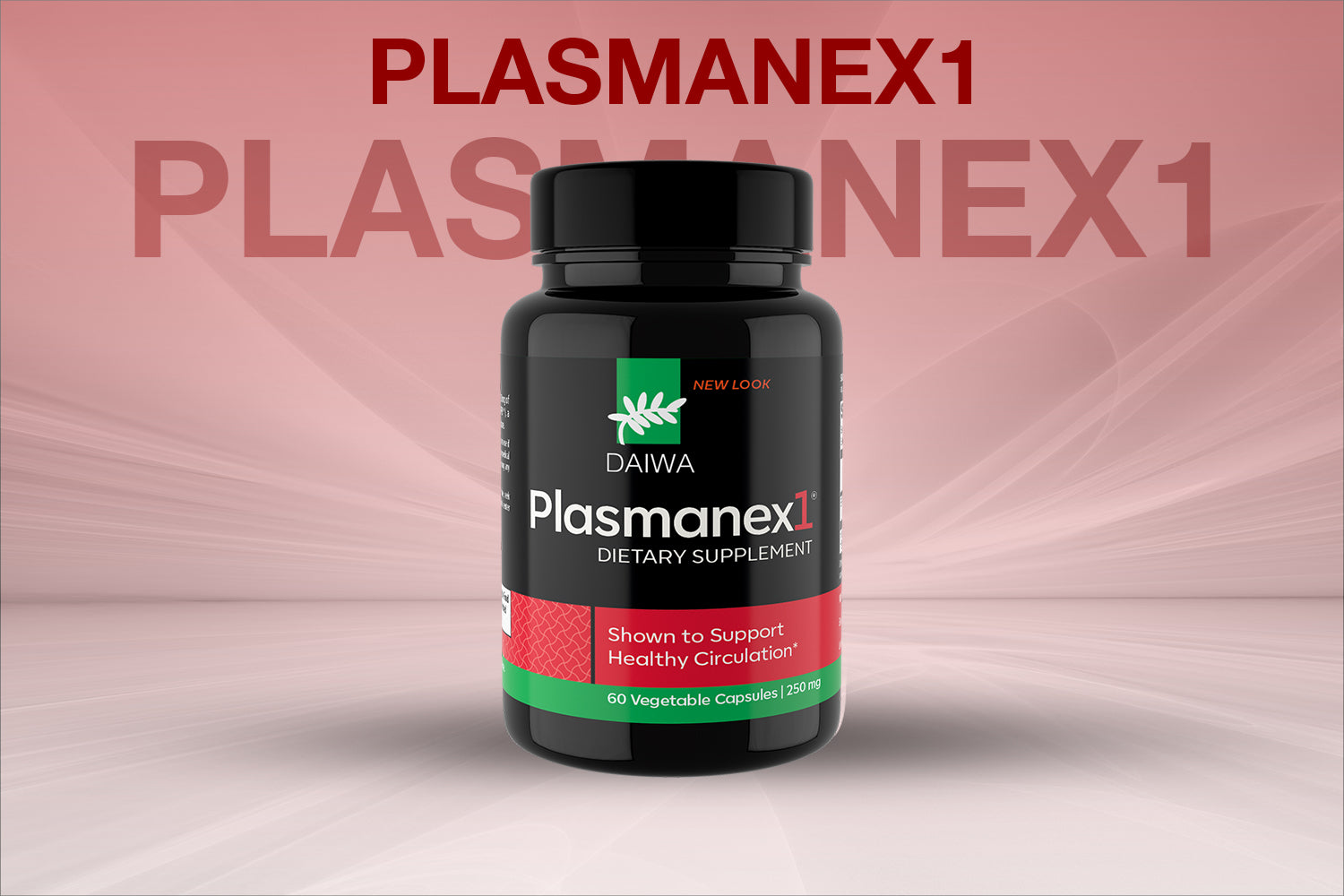
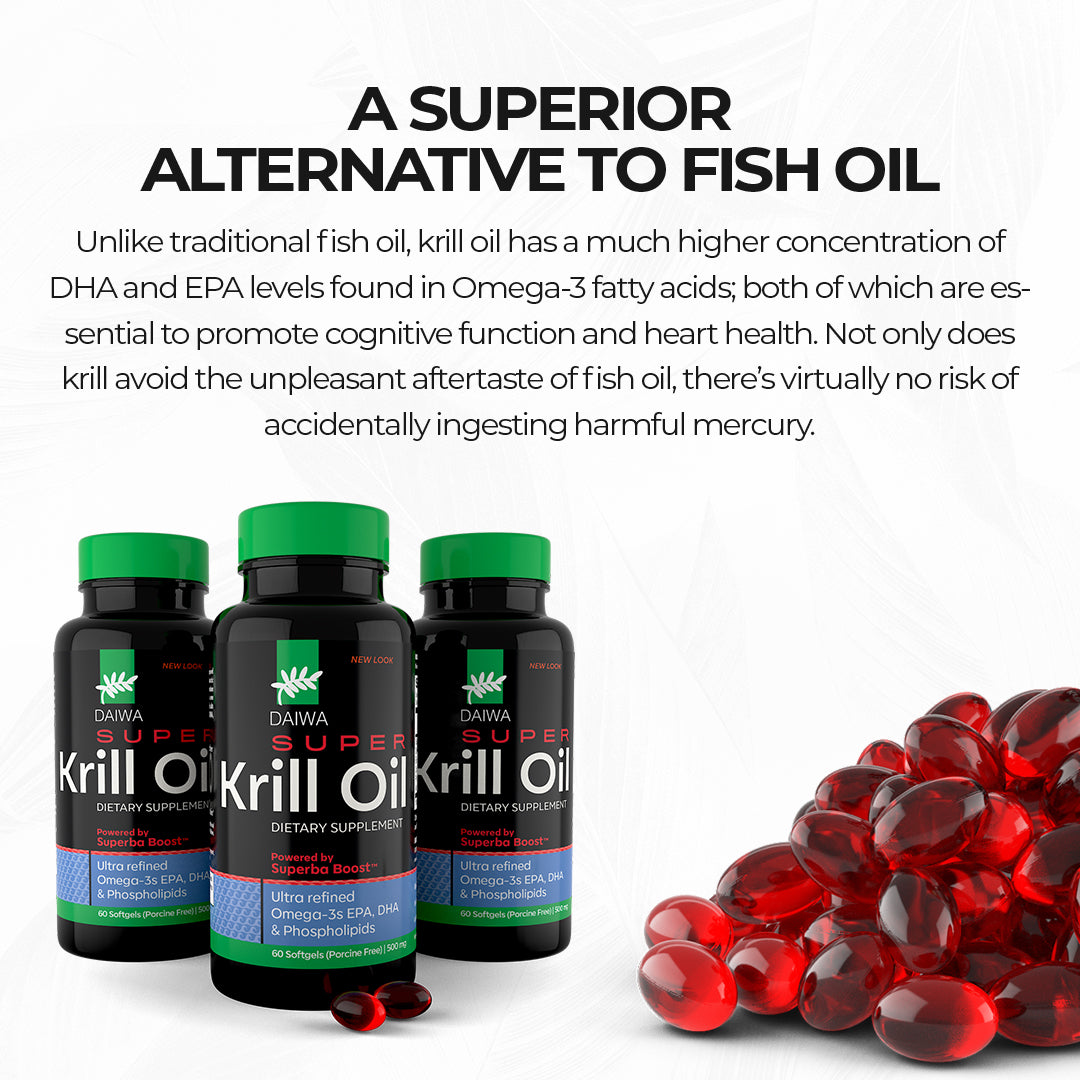
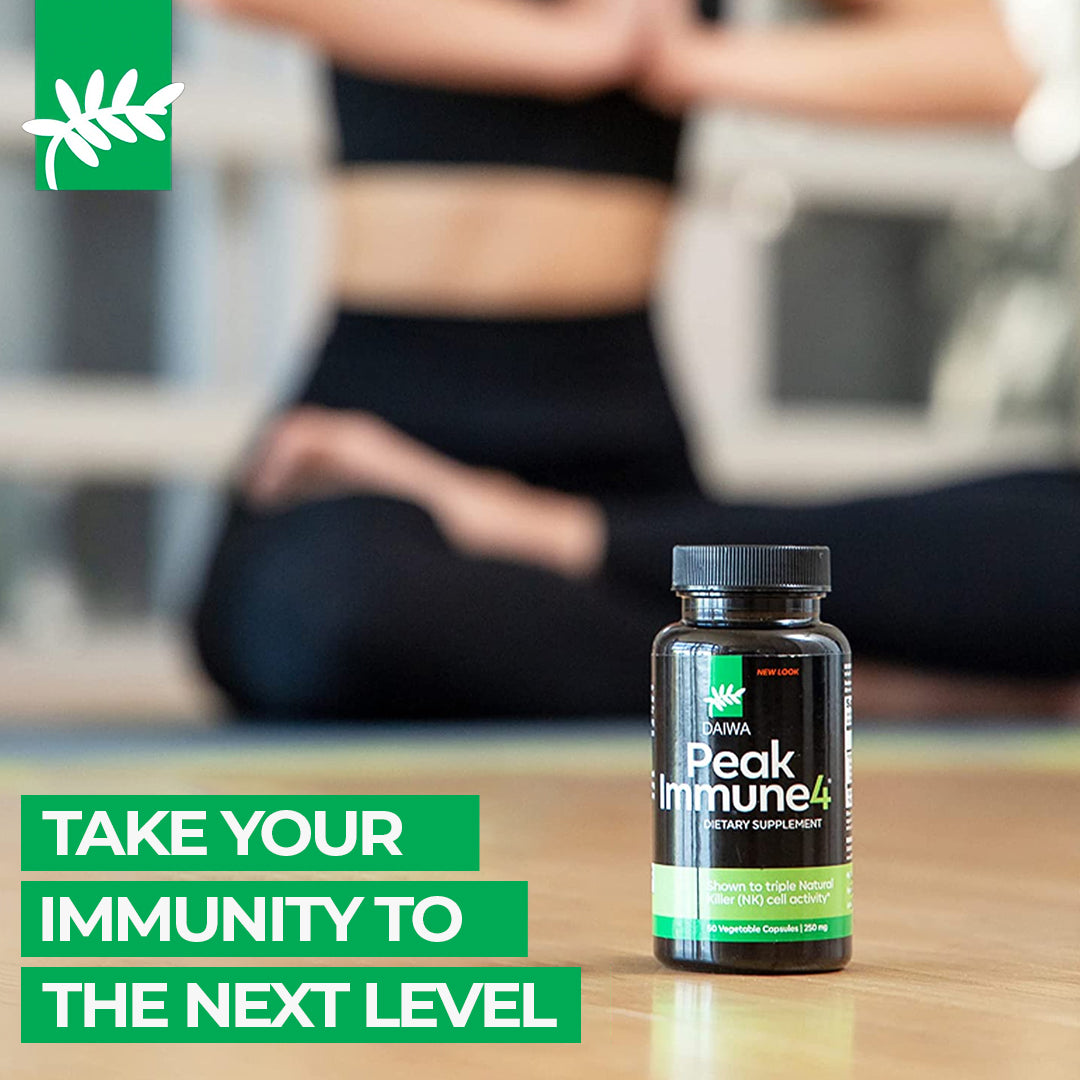
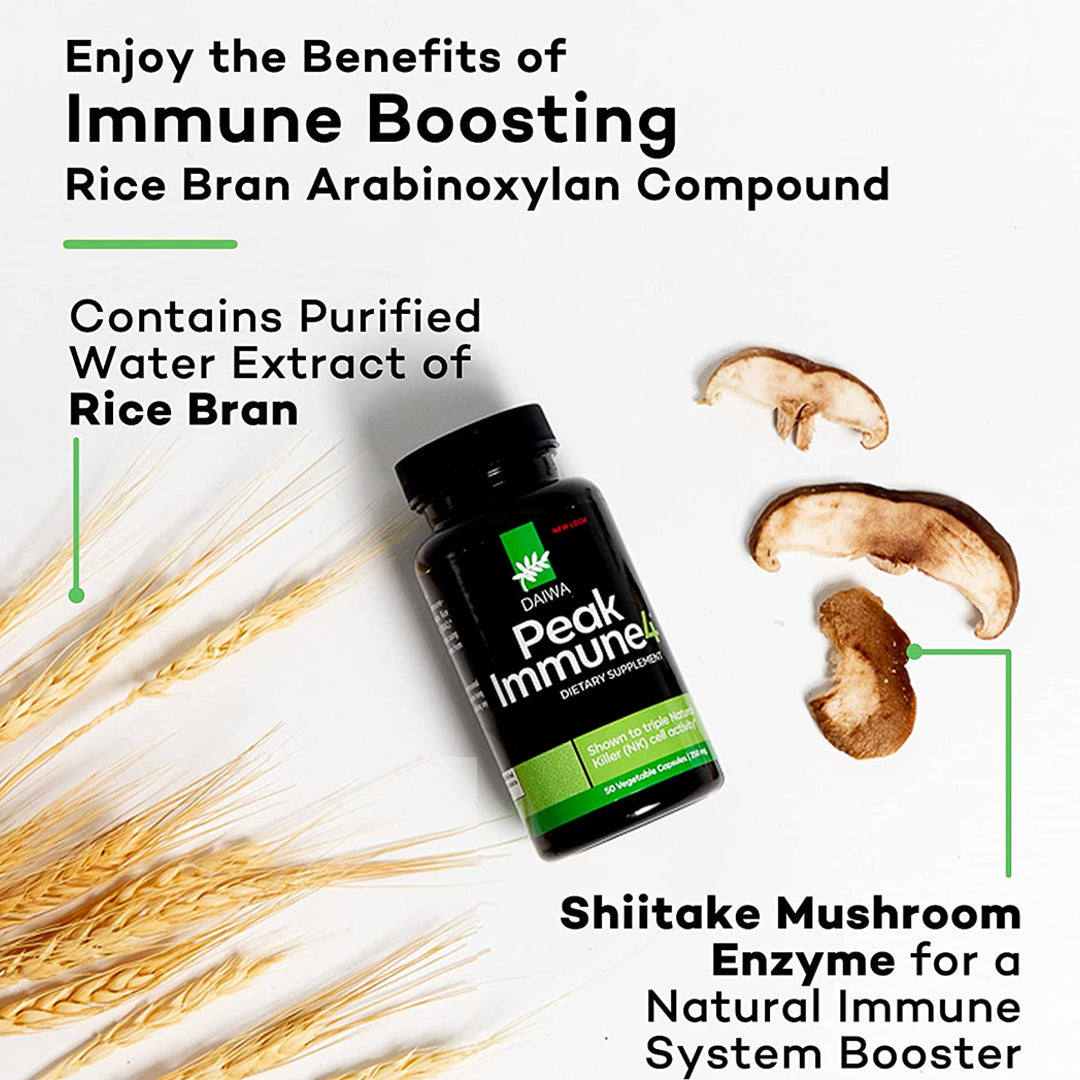

Leave a comment
This site is protected by hCaptcha and the hCaptcha Privacy Policy and Terms of Service apply.